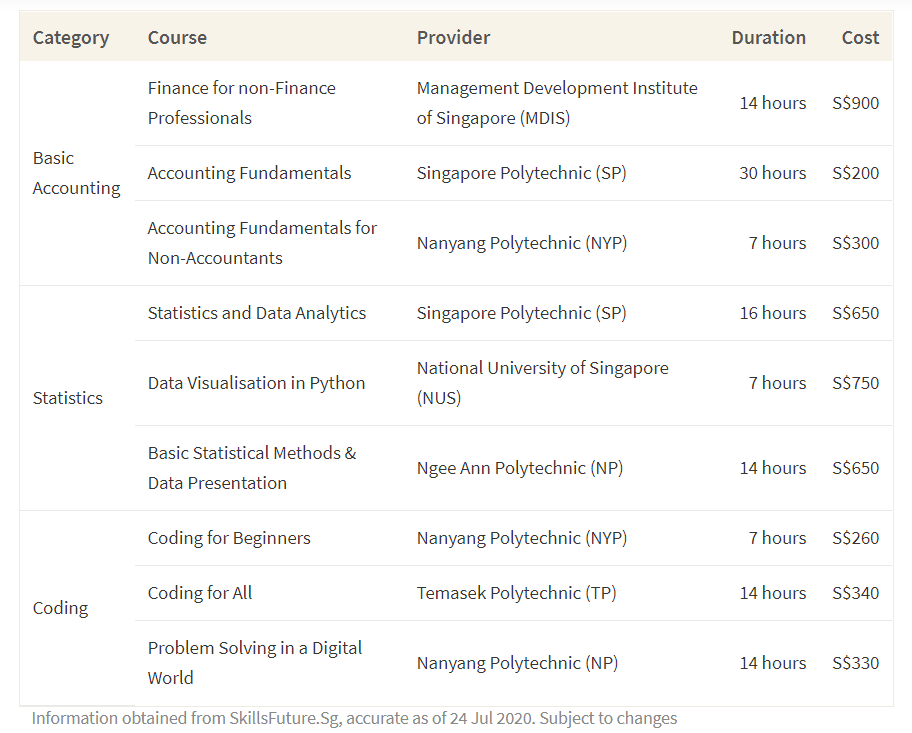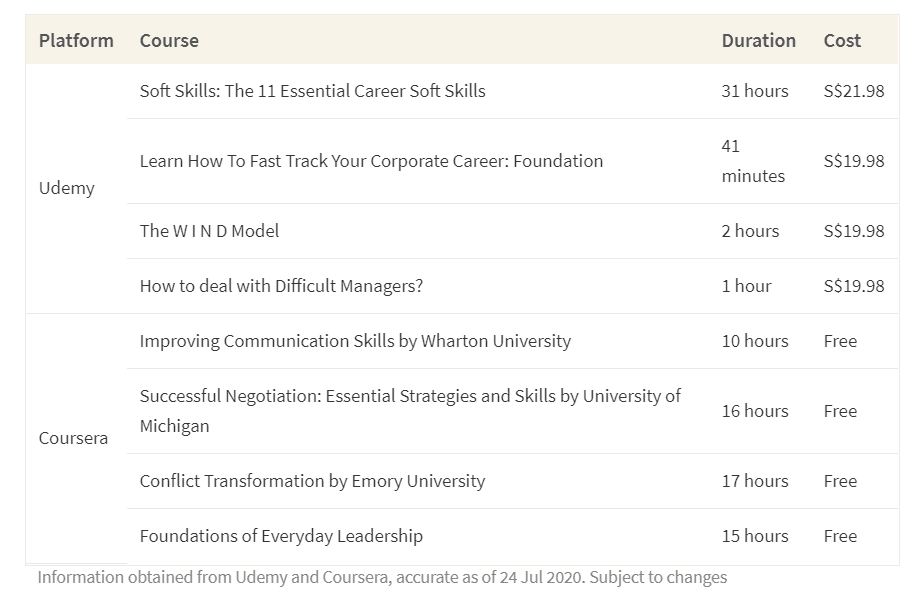3 Tips to Stay Employable During Times of Uncertainty
You don’t have to look beyond the shores of Singapore to observe the devastating economic impacts of the coronavirus pandemic. Many analysts have warned that it’s going to be a rocky road ahead, with full-year retrenchments possibly hitting 200,000, and even those keeping their jobs facing steep wage cuts. This is supported by the worrying statistic that bankruptcy applications reached an all-time high in March this year. In light of these sobering, uncertain times, how can you best position yourself for success? We explore below.
Make Use Of Traineeship Opportunities
Landing a job is challenging even during economic booms. During the coronavirus pandemic and the unfolding recession, receiving an employment offer letter may seem like a pipe dream–especially if you’re a recent graduate. Thankfully, as part of the COVID-19 pandemic measures, the Ministry of Manpower (MOM) and Workforce Singapore (WSG) have introduced the SGUnited Traineeships Programme to provide fresh graduates with traineeship opportunities across various sectors. This programme is designed specifically for those who graduated in 2019/2020, from Singapore’s Institute of Technical Education, polytechnics, universities, and other educational institutions.
Firms involved include telecommunications giant Singtel, DBS Bank, the National University of Singapore (NUS), and infrastructure consultancy Surbana Jurong (among others). Estimated monthly training allowances will vary based on the required qualifications, as well as scope and skills needed for the traineeship. These stints, which will run up to 12 months, will allow you to develop skills and build professional networks as a first-time jobseeker–boosting your employability when the economy rebounds and hiring demand returns. Eligible new graduates can search and apply for traineeship opportunities on My Careers Future under the hashtag #SGUnitedTraineeships.
Enhance Your Technical & Job-Related Skills
If you’re currently employed, there’s no better opportunity to gain new technical skills–with many businesses still implementing work-from-home measures, you’re likely to have more time on hand as you no longer have to factor in a commute. This is where you can make use of ‘SkillsFuture’, a government initiative to provide all Singaporeans with a channel to improve themselves through education and training courses. If you are aged 25 and above, you should have received an opening credit of S$500 in your SkillsFuture Credit account. Add that to the fact that the government has made a one-top top-up of S$500 this year, you’ll have S$1,000 to spend on a wide range of SkillsFuture-approved education and training courses.

In addition to picking courses that are relevant to your current job scope, you should also consider picking up new skills (i.e. re-skilling). You may want to focus your efforts on industries that are currently growing amid the pandemic, such as online education services and agricultural technologies. Relevant skills such as basic accounting and coding will always be in demand in these fast-growing industries.
Don’t Forget To Refine Your Soft Skills
While enhancing your technical or job-related skills is indeed important (a software engineer needs to know how to code, and an accountant has to be an expert in accounting), soft skills are going to matter as much–or even more–in driving career success. According to the international recruitment firm Korn Ferry, 92% of human resource leaders see emotional and social skills as crucial. Consulting giant PWC similarly says that soft skills such as creativity, leadership, and empathy will be in demand. This is especially important as companies are now forced to shift to remote work; individuals who are capable of motivating and managing a remote team will be highly sought-after by companies.

Thus, you’ll find that brushing up on your soft skills is what you need to take you beyond routine work during your employment (aka up the corporate ladder). There are a couple of options for you to refine your soft skills. Some examples include seeking out mentorship in your company, enrolling into Massive Open Online Courses (e.g. Udemy and Coursera), and signing up for SkillsFuture courses.
There’s Nothing To Lose, But Everything To Gain By Being Proactive
It’s never wise to simply sit back and wait for the pandemic to pass and for the employment market to recover. Instead, be proactive. Look out for areas you can improve on, and you’ll be well-positioned for when the economy recovers. However, whether you are looking for a new job or aiming to secure your current position, you should find ways to keep your finances in control you can be prepared during times of uncertainty. This involves setting up your retirement goals, taking control of your debt and building an emergency fund. You should also find ways to cut current costs, whether its something as small as making more of your meals at home or as large as refinancing a mortgage or swapping current insurers for cheaper ones.
